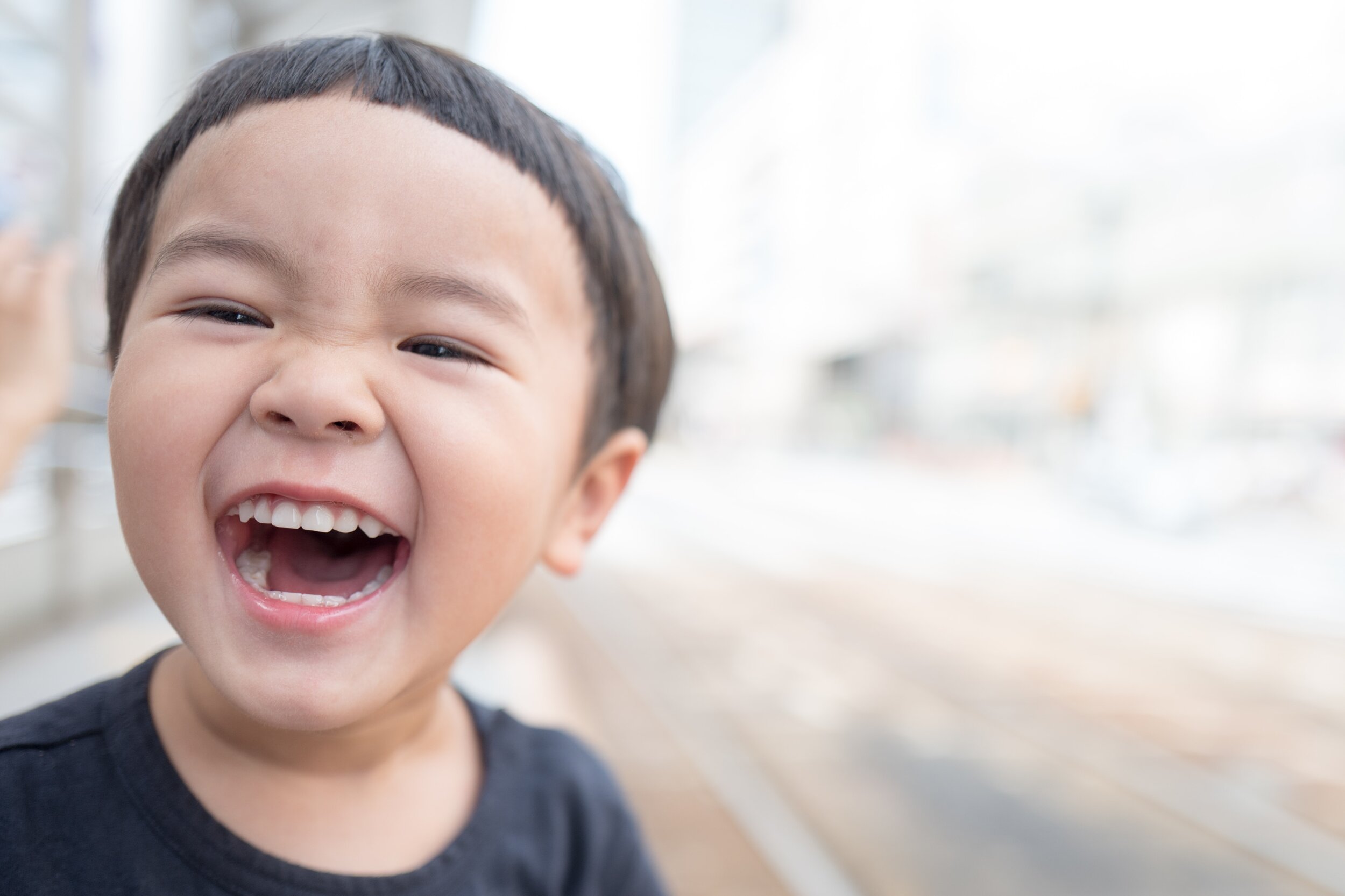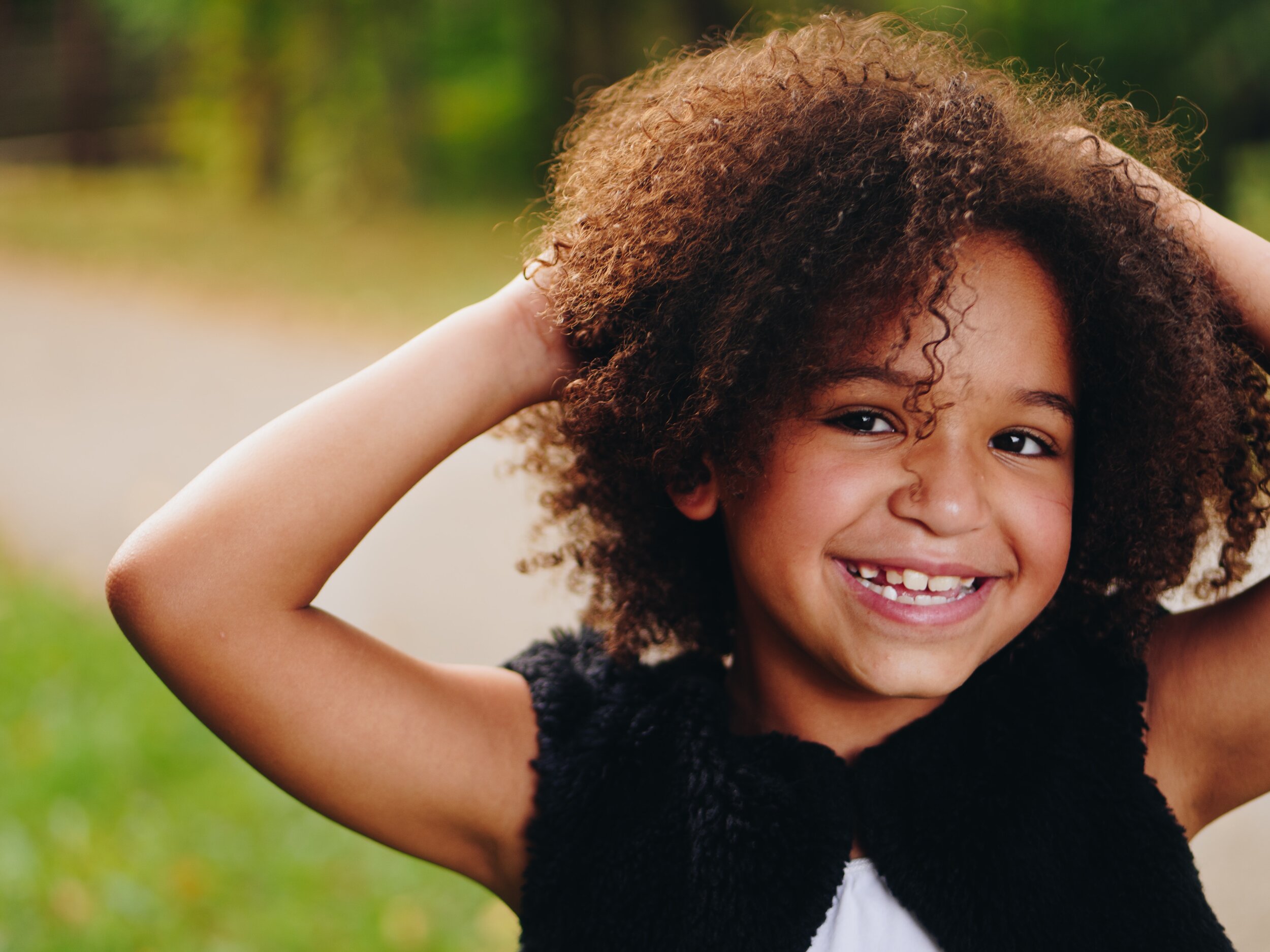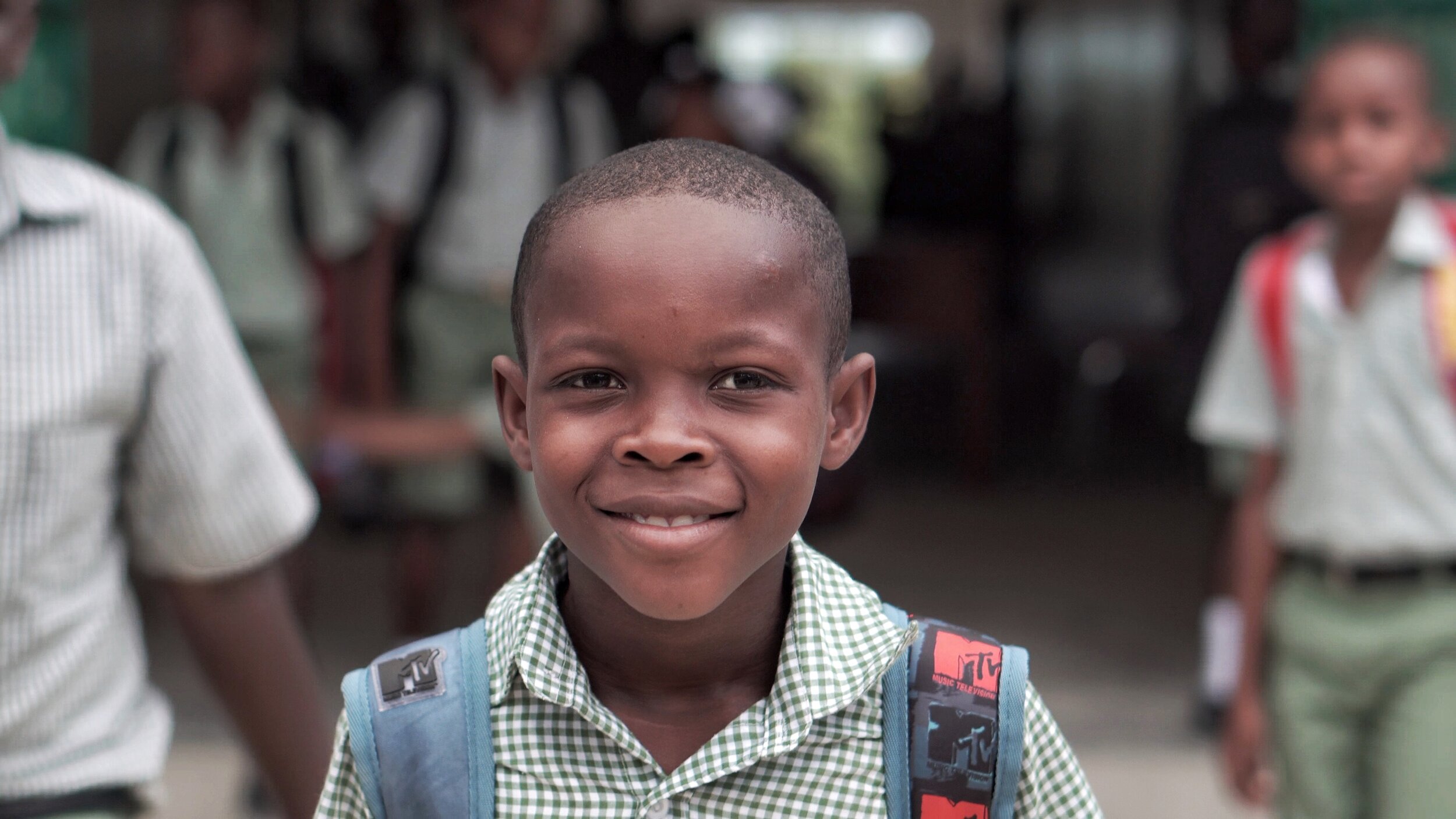Smile A While
Just a few minutes into my Zoom presentation on Trauma Informed Schools (TIS) recently, my lovely dog, Maite, went from fully asleep to full on alarm barking, more or less right in my face, having jumped up onto my kiddo’s bed to get close to the window. Not only could no one hear me, but I was so startled my heart rate spiked and my breath got shallow. It took me a good 30 seconds to get myself back on track. This isn’t the first time she’s startled me like that, but it hasn’t gotten any easier.
I don’t actually have any pictures of Maite in alarm bark mode, because I’m usually to startled to take one. This one shows Maite at McClaren Park in the woods with a stick in her mouth that’s about 3 times as long as she is. There are several other dogs behind her, part of her pack when she could go with a crowd to the park.
If that had happened a few years ago when I recorded my first (very bad) webinar, I think some participants might have judged me for unprofessionalism. But now? This is the new reality of Distance (crisis) Learning. These things happen all the time these days, in the form of pets, small children, partners/roommates and other surprise sounds and sights.
And this isn’t just happening in professional trainings. It is happening in K-12 classrooms, too. In many ways, I think this is a fabulous opportunity to bridge the distance that often shows up between educators and their students. Seeing and hearing bits and pieces of “real life” is a great way to build this connection.
Pic shows smiling baby face with Asian features and no teeth
I just heard from a teacher recently how much her high schoolers appreciate it when her toddler comes into view, and I know my partner’s students like to see and hear from Maite from time to time.
One way to build Compassionate and Dependable Relationships is to help students see the grown-ups at school as part of their community, as “regular” people, with good days and hard days, who are learning and growing too. Back in the long ago, this happened more naturally, as your teachers were right from your community, your aunt, or the woman who plays piano at your church. They were people you saw outside the classroom, that you heard about in the neighborhood. Now with people moving around the country much more frequently, that isn’t often the case.
Pic shows multiple smiling faces
I encourage you to be gentle with yourself and your students. To smile when your humanity shows, because this allows them to know you are not judging them or their situations. I hear teachers doing this with such grace and I hear students responding sometimes with such glee that I feel a little less hopeless about this time of crisis learning. Smile with your students as you wrap up. You’ll all feel better for it.
Except for images I take myself, all my images come from upsplash.com a great source for free photos.











